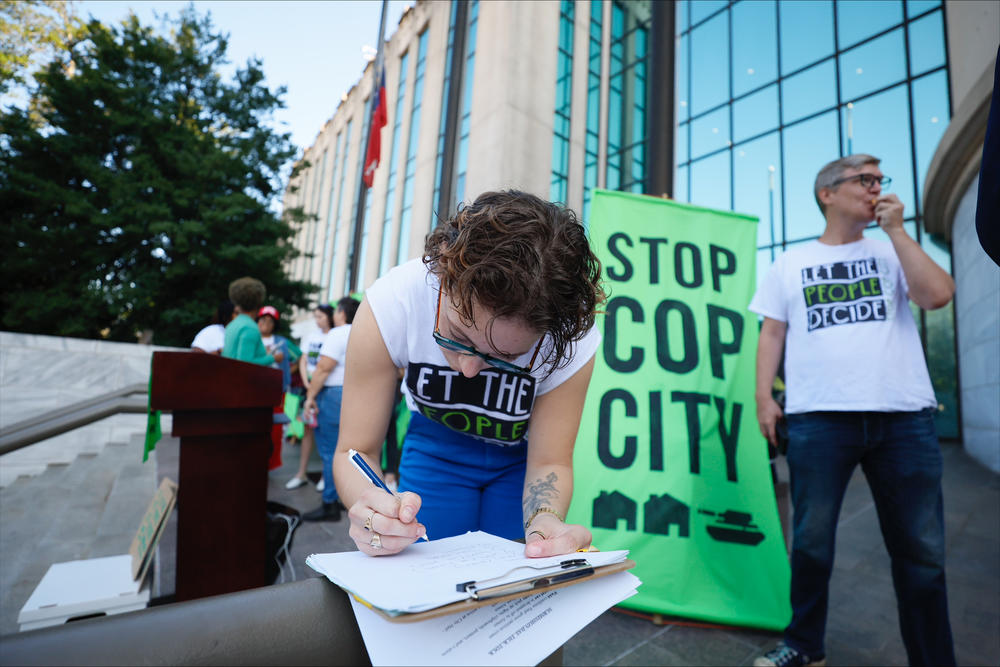
Caption
Activists gather outside Atlanta City Hall, Monday, Sept. 11, 2023, where they delivered dozens boxes full of signed petitions to force a referendum on the future of a planned police and firefighter training center. An analysis of petition entries by four news organizations finds it’s unclear whether petitioners have enough valid entries to force the citywide vote, with nearly half the entries unable to be matched to eligible registered Atlanta voters.
Credit: Miguel Martinez/Atlanta Journal-Constitution via AP, file

